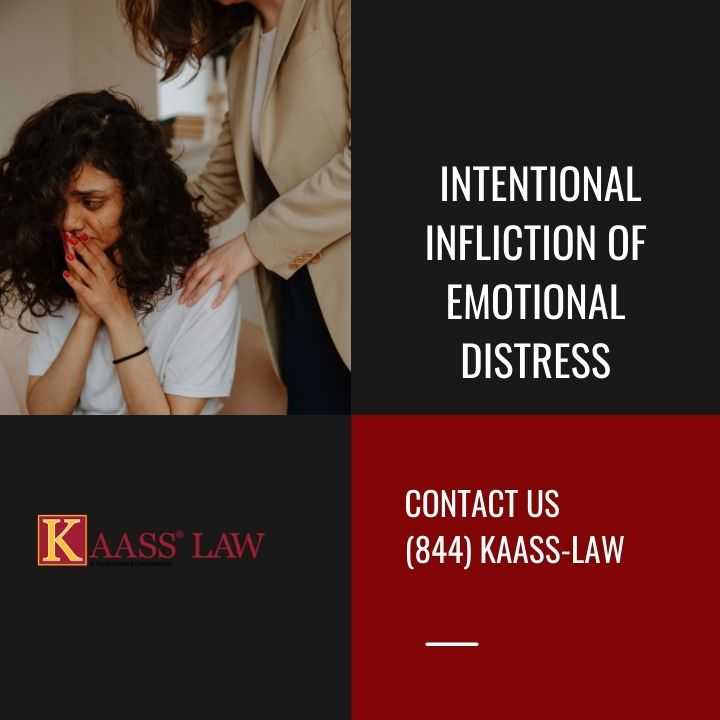Under California law, a claim for intentional infliction of emotional distress may be made where the defendant engaged in outrageous activity that resulted in emotional anguish for the victim and was done so on purpose or with reckless disregard for the victim.
If the victim wins their case, compensation will be:
- punitive damages
- compensatory damages
How Do I File a Claim for Purposely Causing Emotional Distress?
In California, a plaintiff must establish the following in order to succeed on an intentional infliction of emotional distress claim:
- The defendant acted in an outrageous manner.
- Either the behavior was careless or upset someone.
- The plaintiff experienced considerable emotional distress as a result of the defendant’s actions.
Emotional discomfort by California law includes: sorrow, agony, dread, horror, trepidation, grief, worry, shock, humiliation, and disgrace.
However, the “intentional infliction” law in California only applies when mental anguish is exceptionally severe. Serious emotional distress is not light or fleeting. No reasonable person should have to go through such intense or long suffering.
What does “reckless disregard” and “outrageous conduct” mean?
A defendant commits a deliberate act of causing emotional distress for the purposes of California law when:
- The offender is aware that their actions will likely cause others to experience emotional pain
- There is little to no thought given to how the defendant’s actions might affect others.
The defendant need not have done something intentionally bad or maliciously motivated. It suffices that they acted outrageously without taking into account the likely repercussions.
Outrageous behavior includes more than just insults, annoyances, hurt feelings, or bad manners. A person would consider a behavior outrageous if they believed it to be outside the bounds of decency. The following factors, among others, determine whether the defendant’s actions were outrageous:
- Whether the defendant misused a power or relationship that gave him or her actual or perceived control over the plaintiff’s interests
- Whether the defendant was aware that the plaintiff was especially prone to mental distress and whether they were aware that their actions would probably cause emotional injury.
Is a Physical Harm Required for the Plaintiff to Receive Compensation for Emotional Distress?
No. The plaintiff need not show a physical harm in order to be eligible to compensation for severe emotional suffering. But in circumstances when the plaintiff has significant medical debt, lost wages, diminished earning capacity, or other compensatory damages, damages for mental anguish are frequently covered.
Plaintiff’ can also receive punitive damages In California, plaintiffs may receive punitive damages when there has been gross negligence or willful misconduct. Punitive damages are often awarded in intentional infliction instances because they call for “outrageous” behavior.
What are Some Instances of Causing Emotional Harm on Purpose?
A victim of intentional infliction of mental distress may receive compensation even if there was no financial loss or bodily harm.
The following are only a few examples of the cases that intentionally cause mental distress:
- sexual abuse or assault,
- DUI-related fatalities or injuries
- assault and battery that severely injures the victim’s body
- Knowingly creating or disseminating a highly hazardous product
- revenge on a whistleblower, or
- use of excessive force.
An injury need not be physical in order to have a significant effect on a person’s life. Injuries to the emotions can be just as painful and occasionally more challenging to heal than many other physical ailments.
Glendale Lawyer
An attorney can assist you in obtaining compensation for your damages if you or someone you know was the victim of willful infliction of emotional distress. Injuries to the emotions can be just as painful and occasionally more challenging to heal than many other physical ailments. Please feel free to give our office a call at 310.943.1171.


Pingback:Can a Physical Injury Lead to Cardiac Issues? - KAASS LAW